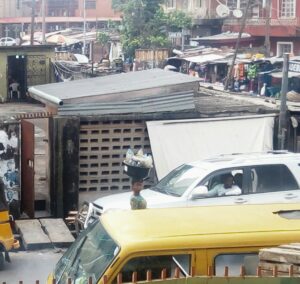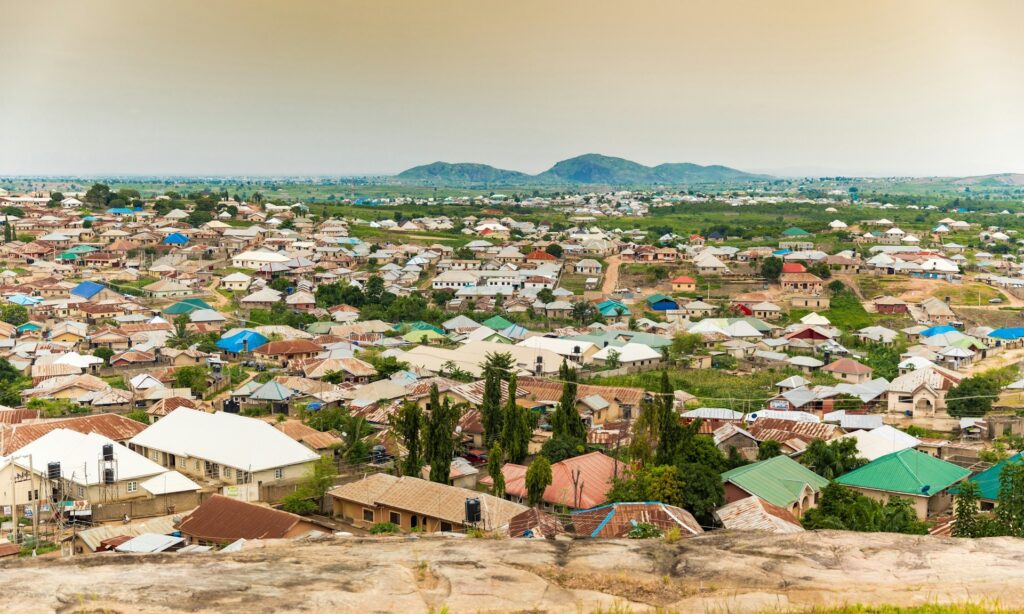Have you ever considered the benefits of having a residence? Homes are key to our wellbeing. They provide safety and privacy; they protect our health and provide the means to prepare and store food. The very act of having an address also provides opportunities, as most employers worldwide require one.
Crisis
Nigeria is Africa’s most populous country, with some 200 million people today. That number is expected to double by 2050, yet there is already a deficit of 22 million homes. Meanwhile economic inequality is reaching extreme levels, exacerbating the issue. In fact, nearly half of all Nigerians are experiencing multidimensional poverty, which considers levels of inequality, life expectancy at birth, standard of living, and access to education as well as basic wealth.[1] Food insecurity is also a sad fact of life. Besides increasing, the population has also shifted in recent years. In 1969 only 17.5% of the population was urban; in 2019, however, 51.2% of Nigerians live in towns and cities, where 18% of people live in abject poverty.[2]
[N]ewly built luxury dwellings are springing up throughout cities – made possible often though the forced eviction of poor communities.

7 in 10 urban Nigerians live in informal “shanty” settlements. Whole families huddle in poorly constructed shacks with no water and poor sanitation. Many scratch out a living doing farm labor or other menial jobs – jobs that ask few questions – or get by with petty trade. Recent years has seen the steady clearing of many of these slums to make way for new housing developments. With such a large hosing deficit in Nigeria, this could be encouraging, only none of the forcibly evicted residents could ever afford one of the developments’ handsome new houses.[3]
Instead, they must start again with nothing, and many end up on the streets. Without even a roof over their heads, they take shelter from weather under bridges or trees. The lucky ones have mosquito nets to protect them from disease, but most do not even have this. It is little wonder that Nigeria has the highest malaria burden in the world.[4] With some 678 million cases in 2021 alone, this disease leaves hospitals and clinics chronically overworked.
Where Do They All Come From?
Nigeria has been experiencing violence and environmental disasters for decades. Last year alone 1.3 million Nigerians lost their homes due to extreme flooding. 600 lost their lives. Flooding is persistent and seasonal, too, and each event can destroy tens or hundreds of homes. Terrorist activities, especially prevalent in the northern areas of the country, has thus far displaced 2 million people.[5]
Having fled disaster and violence, refugees head for the cities, but there is nothing there for them. They will huddle in their poorly constructed shacks there for years or weeks before being forcibly evicted again by security and bulldozers. They live knowing it is only a matter of time. Sadly, vulnerable groups such as people with HIV/AIDS and the physically disabled, as well as minorities such as the LGBT community are the most likely to be evicted – and the most likely to end up living on the streets.
Homelessness and Crime
According to UN Special Rapporteur Leilani Farha, once homeless these people are likely to be “persecuted, harassed, extorted, and even arrested and jailed without ever having committed a crime.” Only the crime of being homeless. Being homeless also makes people more vulnerable to being victims of crime. Privacy is scarce even at home, and entire neighborhoods share a bathroom– a dangerous proposition in this time of increased violence and kidnapping, especially for women and children.
Rewriting the Script – A Start in the Right Direction
Blackbird Global and AfHousing are developing a program to build communities in Nigeria for poor and low-income people. This development aims to help 5,000 families overcome and avoid the slide into abject and multidimensional poverty by providing affordable housing that includes a safe water supply, waste disposal and bathrooms in each unit as well as power generation for electricity – a luxury nearly half of Nigerians live without. By building communities such as this, making safe community homes affordable for those most in need, we can begin to put a dent in Nigeria’s desperate need.
Want to help? Every donation counts – Donate Today!
[1] https://theconversation.com/why-nigerias-efforts-to-support-poor-people-fail-and-what-can-be-done-about-it-137122
[2] https://www.researchgate.net/publication/316701170_POVERTY_ALLEVIATION_PROGRAMS_IN_NIGERIA_ISSUES_AND_CHALLENGES
[3] https://borgenproject.org/homelessness-in-nigeria/
[4] https://www.afro.who.int/countries/nigeria/publication/report-malaria-nigeria-2022
[5] https://journals.sagepub.com/doi/full/10.1177/21582440211045078
